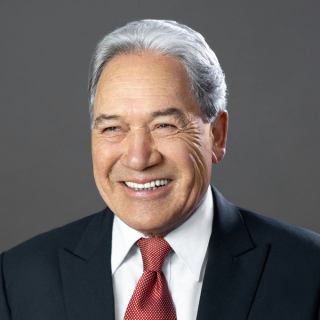
Practical information
Registration for this event is now closed.
Beijing flexes its economic muscle with frequent success in pursuit of Chinese geopolitical aims. By contrast, the United States has largely forgotten the historic role of geoeconomics in American foreign policy. The United States must come to grips with the reality that the current global landscape is populated by a set of countries, most particularly China, which deploy modern economic tools in pursuit of their national interests. Policymakers in Washington need to give more regular, rigorous, and sophisticated consideration to geoeconomics, especially since so many of today’s greatest strategic challenges cannot be fully understood – let alone addressed – without appreciating the economic forces driving them.
Conference chaired by Dominique David, Advisor to the Executive Chairman

Robert Blackwill is Henry A. Kissinger senior fellow for U.S. foreign policy at the Council on Foreign Relations (CFR). His current work focuses on American foreign policy writ large as well as China, Russia, the Middle East, South Asia, and geoeconomics.
Most recently, Ambassador Blackwill was senior fellow at the RAND Corporation in Santa Monica, California, from 2008 to 2010. As deputy assistant to the president and deputy national security advisor for strategic planning under President George W. Bush, Ambassador Blackwill was responsible for government-wide policy planning to help develop and coordinate the mid- and long-term direction of American foreign policy. He also served as presidential envoy to Iraq, and was the administration's coordinator for U.S. policies regarding Afghanistan and Iran.
He is a member of the Council on Foreign Relations, the International Institute for Strategic Studies, the Trilateral Commission, and the Aspen Strategy Group; and on the board of Harvard University's Belfer Center for Science and International Affairs.
Other events

Navigating War, Reforms, and Secure Future: Ukraine’s EU and NATO Accession Path
Exclusive conve

Lunch debate with Winston Peters, Deputy Prime Minister and Minister of Foreign Affairs of New Zealand
Discussion co-chaired by Thierry de Montbrial, Executive Chairman of Ifri, member of the Academy of Moral and Political Sciences, and Marc Hecker, Deputy Director of Ifri (in English without translation).

Shaping Europe’s Technological Sovereignty
In the wake of Donald Trump's re-election in the United States, Europeans face a crucial imperative: rethinking their sovereigny, especially in the technological realm. What will be the strategic priorities and action levers of the new European Commission on this issue? What assessment can we make of the previous Commission’s achievements and challenges in navigating Sino-American technological competition, transatlantic dependencies, and emerging global partnerships?










